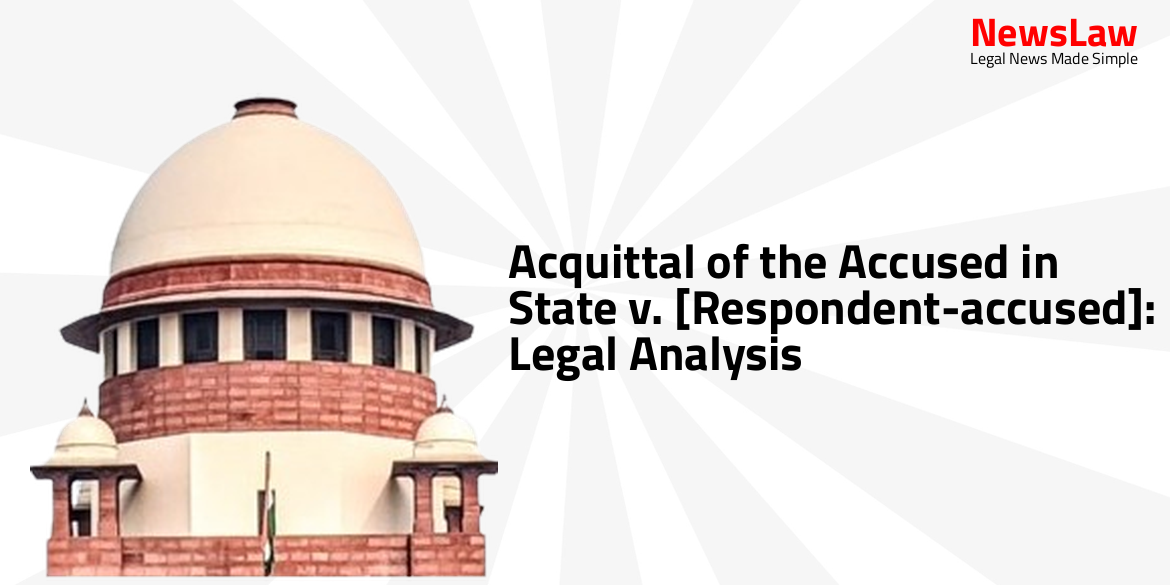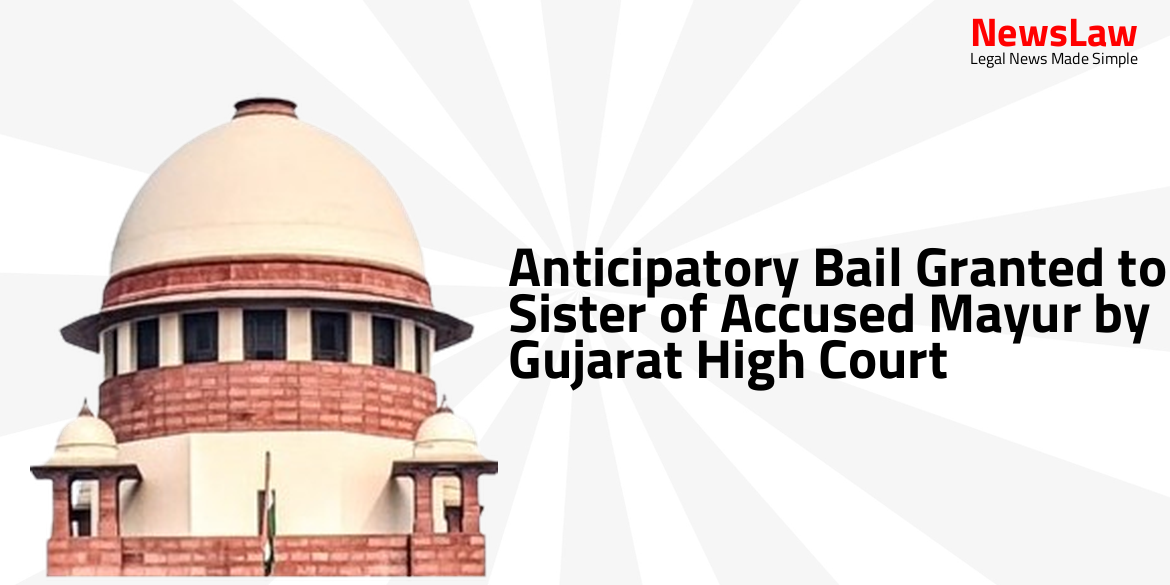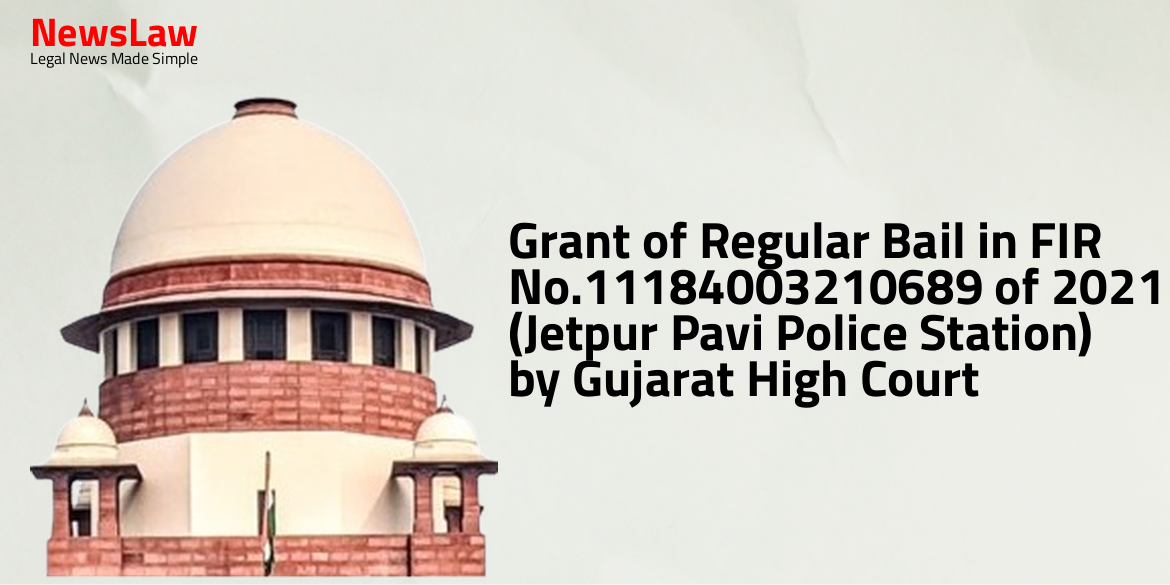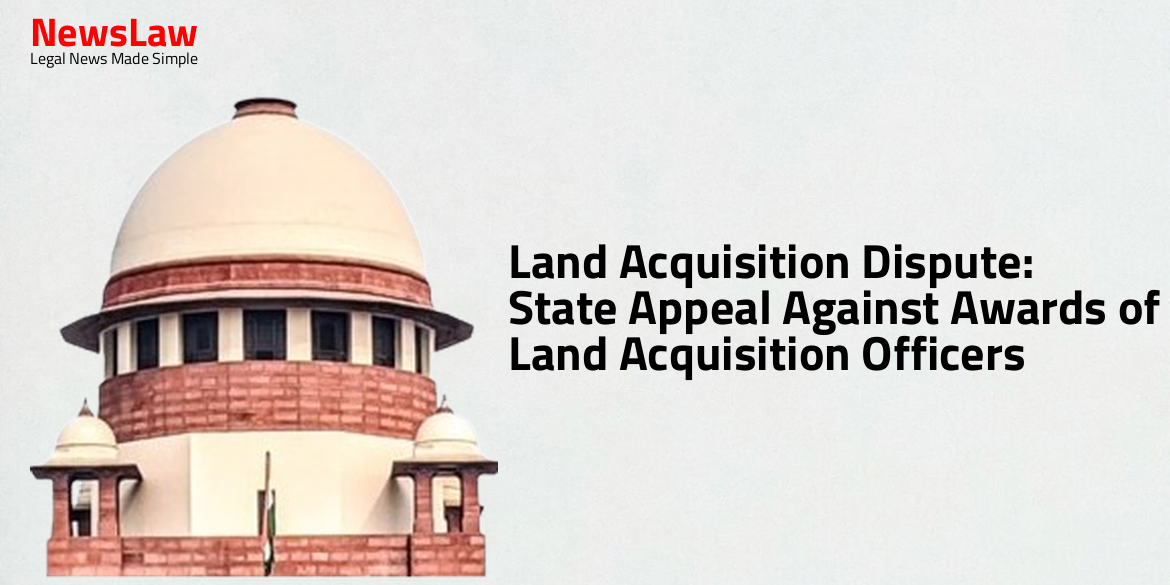In a recent judgment, the Gujarat High Court thoroughly examined the case of State v. [Respondent-accused], where the accused was acquitted on charges under sections 397 and 34 of the IPC. The court emphasized the need for concrete evidence to establish guilt beyond a reasonable doubt. The acquittal underscores the presumption of innocence and the meticulous approach required in criminal trials. Let’s delve into the legal intricacies of this significant case.
Facts
- The State filed an appeal challenging the judgment and order passed by the Additional Sessions Judge
- The complainant collected a large sum of money from a petrol pump and was attacked by unknown persons
- The accused pleaded not guilty and claimed to be wrongly implicated in the FIR
- During the investigation, bundles of notes were recovered without official bank or petrol pump seals
- The accused’s defense included the explanation that the money was for distribution among the poor
- Prosecution failed to prove the case beyond reasonable doubt leading to the acquittal of the accused
- The present respondent-accused has been acquitted for the offense alleged under sections 397 and 34 of the IPC.
- The learned Judge recorded the acquittal in the judgment and order.
Analysis
- The prosecution has not proved the two crucial factors to establish the involvement of the accused.
- No recovery of knife or weapon was made, which is essential for Section 397 of the I.P.C.
- Witnesses during cross-examination raised doubts about the panchnama recording the recovery.
- The T.I. Parade was not conducted by the Investigating Agency to establish the accused’s involvement.
- The evidence presented failed to establish the presence of the accused at the crime scene.
- The witness in charge of the investigation could not positively identify the recovered notes.
- The arrest procedure of the accused was followed under section 41(1)(d) of the Code.
- No T.I. Parade was conducted to confirm the identity of the accused as alleged by the complainant.
- The Hon’ble Supreme Court recently considered legal parameters for appeals under Section 378 of the Code against orders of acquittal.
- The Appellate Court must assess whether the Trial Court’s view is plausible, especially when evidence has been analyzed.
- An order of acquittal enhances the presumption of the accused’s innocence, requiring the Appellate Court to proceed cautiously in reversing the Trial Court’s decision.
- The Learned APP for the appellant-State failed to identify any flaws in the Trial Court’s findings.
- No evidence has been presented to indicate any errors in the Trial Court’s recorded findings.
- The trial court has correctly acquitted the accused as the order does not have any flaws.
- The prosecution failed to establish the involvement of the accused beyond a reasonable doubt.
- The trial court’s approach in evaluating evidence and reaching conclusions was sound.
- No evidence linking the accused to the alleged offense was presented.
- The trial court did not ignore relevant material or consider irrelevant information.
Decision
- Cancelled the bailable warrant issued against the respondent-accused.
- Record and proceedings to be sent back to the concerned court immediately.
- Dismissed the present appeal as a result of the warrant cancellation.
- No interference needed by the Court in this appeal.
Case Title: STATE OF GUJARAT Vs. SUHEL ISMAIL IBRAHIM VORA PATEL
Case Number: R/CR.A/534/2008



